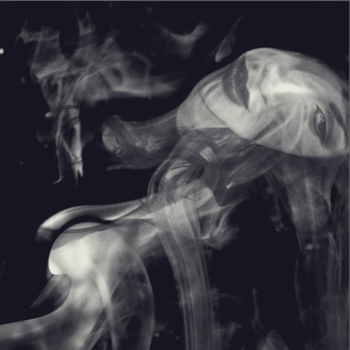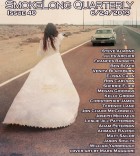The act of “chewing” here seems like a sort of metaphor for something else, verges on the fantastical, but is grounded in reality. Can you tell me about where the idea for this story came from and how it evolved as you revised it?
Most of my stories don’t have as much of a real world origin as this one. I actually stole I mean borrowed I mean was inspired by this news story about a boy that got in trouble for literally chewing a pop tart into the shape of a gun (at least that’s how I remember the story). The fact that this showed up on a news broadcast during a morning show chat-fest is what compelled me to write a story about a similar situation. There are all of these socio/psychological/pop culture angles to it that are fascinating. There is the gun control angle, the youth and violence angle, the male identity angle, and a love story. The love story did not show up on the news, but I figure every story is a love story. In my version, the chewing becomes this expression of devotion unique to the men in this particular family. Unfortunately, their identities among each other are pretty menacing. Every encounter is essentially an arm wrestling contest. They are unable to cleanly transfer that hostile energy into something appropriate for a world that (on paper) detests brutality but praises it in all kinds of other ways. Chewing, in a way, is a destructive act of necessity and pleasure, which describes so many human inclinations—biological and psychological.
If you were going to chew something into something, what material would you choose and what shape would you chew it into?
This stumps me for some reason. I guess because the things most people want (wealth, love, and power) are too abstract to fit in a mouth. I also have a germ phobia, which makes the thought of chewing random things more than a little difficult to process. I suppose once I get past all of that and I have a sterilized magic object to transform into something else I would pick a foil lid similar to the one in the story. I like foil lids any day. Also, I disappointed someone this past week, and I think the damage might be irreparable. In the story, the chewing is done as a form of communication. I would like to make something that represents an apology, some kind of mutual understanding, some kind of reciprocity, empathy, or forgiveness. I might chew the lid into a clock with no hands, maybe to mean “give us time” or the scales of Justice, meaning let us weigh the guilt and innocence here. Ha. Both would probably still be offensive and get me nowhere as usual.
This piece is very voice-driven and builds in tension and energy. Do you usually start with voice and character, or do you find your stories from a situation or place, or something else entirely?
Ahhhh voice, voice, voice. Style, energy, perspective, however you put it these are the things that compel me as a reader first before the story manifests. It is the thing that makes the character in the story worth my attention. Then the plot bombs can drop: the gun on the counter, the subterfuge, etc. So, as a writer, I really have to feel the voice of a story just to be interested in it. This is nothing new of course. The narration should fit the tone of the story as well as the sensibility of the protagonist(s). Characters, truly dynamic characters, are not going to fit right into any old syntax. Every interesting person in the world has a certain rhythm in his or her speech, a canter in how they logically move from one thought to another. Characters on paper have to be as real as that, and they deserve prose that fits whatever is unique about them. I worry that some people think of voice as just dialect, regional inflections, certain word choice, etc. That isn’t all of course. The voice is also a thought pattern, a system of reason that exists within a particular character. The narrator in “Chew” is negotiating a lot of feelings, including guilt and pride and self-righteousness. The voice has to reveal that in a way that makes sense for that person.
What do you like to do when you are not writing?
What a question. Well, aside from numerous vices, I like to do practically nothing at all. It just looks like nothing from the outside, but internally I’m really busy thinking and planning strategies for life. To most people it might seem as though I’m lounging and taking a series of luxurious naps throughout the day. In reality, big, big things are brewing in my head. Big, big things.




 The core workshop of SmokeLong Fitness is all in writing, so you can take part from anywhere at anytime. We are excited about creating a supportive, consistent and structured environment for flash writers to work on their craft in a community. We are thrilled and proud to say that our workshop participants have won, placed, or been listed in every major flash competition. Community works.
The core workshop of SmokeLong Fitness is all in writing, so you can take part from anywhere at anytime. We are excited about creating a supportive, consistent and structured environment for flash writers to work on their craft in a community. We are thrilled and proud to say that our workshop participants have won, placed, or been listed in every major flash competition. Community works.